Can a Pug Eat Potato?
Date Published: February 16, 2024 | Last Modified: February 17, 2024
Let's set the record straight from the get-go - pugs absolutely can enjoy potatoes as part of their diet! In this article, we will delve into the health benefits that potatoes can offer our beloved pugs, as well as discuss the pros and cons of incorporating this starchy vegetable into their meals. Safety concerns will be addressed to ensure our furry friends are kept out of harm's way, including clarifying whether potatoes are toxic to pugs. Ultimately, we aim to determine if potatoes can be a nutritious addition to a pug's diet.
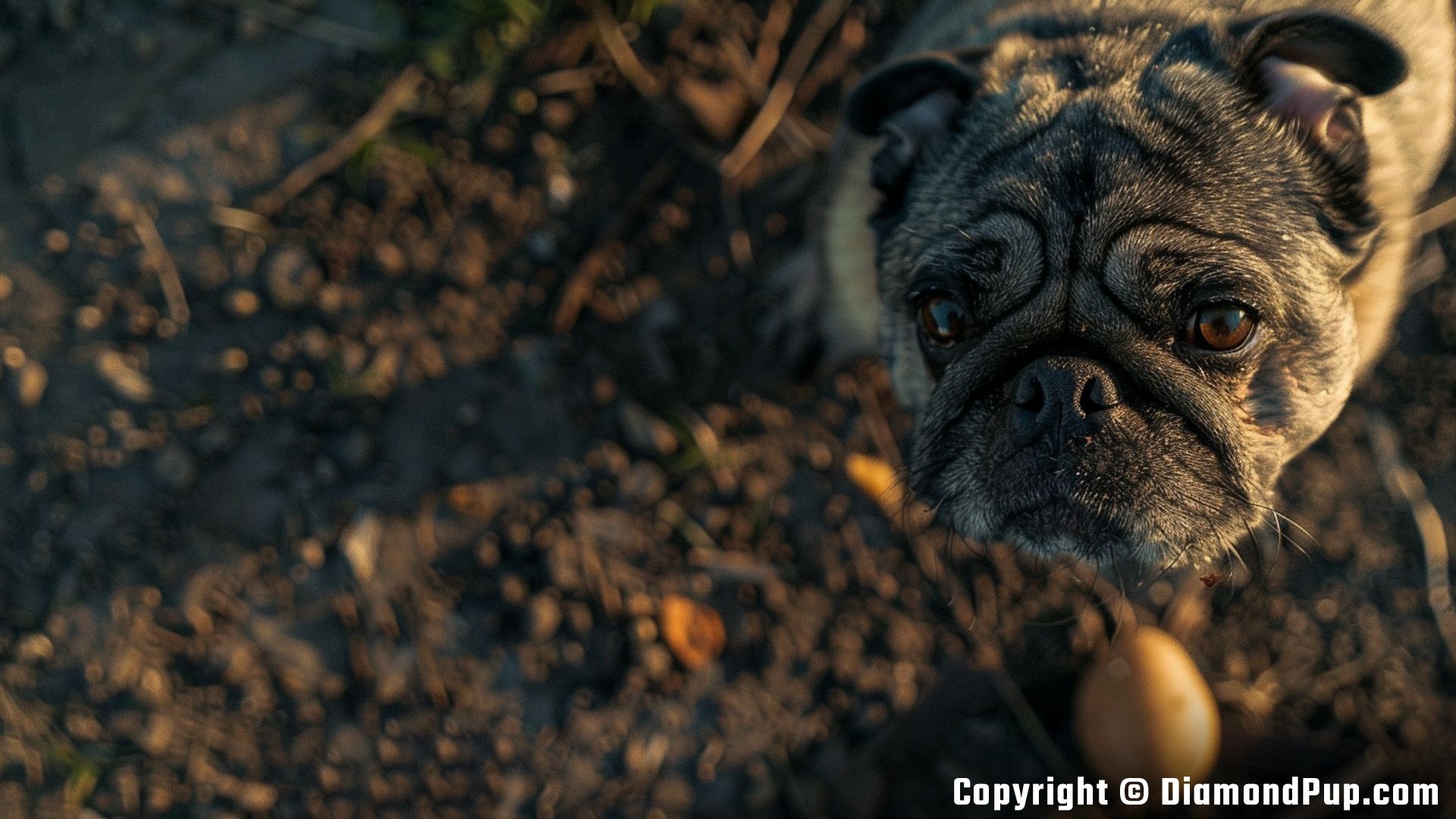
Are Potatoes Good for Pugs?
Yes, potatoes can be good for Pugs when fed in moderation and prepared correctly. Pugs are prone to obesity, so it's crucial to be mindful of portion sizes and avoid adding excess calories from unhealthy toppings like butter or oil. Opt for plain, boiled, or baked potatoes without any seasoning. Potatoes are a good source of vitamins C and B6, potassium, and fiber, which can contribute to a well-rounded diet for Pugs.
However, it's important to note that potatoes should not be the main staple of a Pug's diet. They should be complemented with high-quality dog food that meets all their nutritional needs, as potatoes alone cannot provide all the essential nutrients required for optimal health. Consult with your veterinarian to determine the appropriate amount of potatoes to include in your Pug's diet based on their individual needs and dietary requirements.
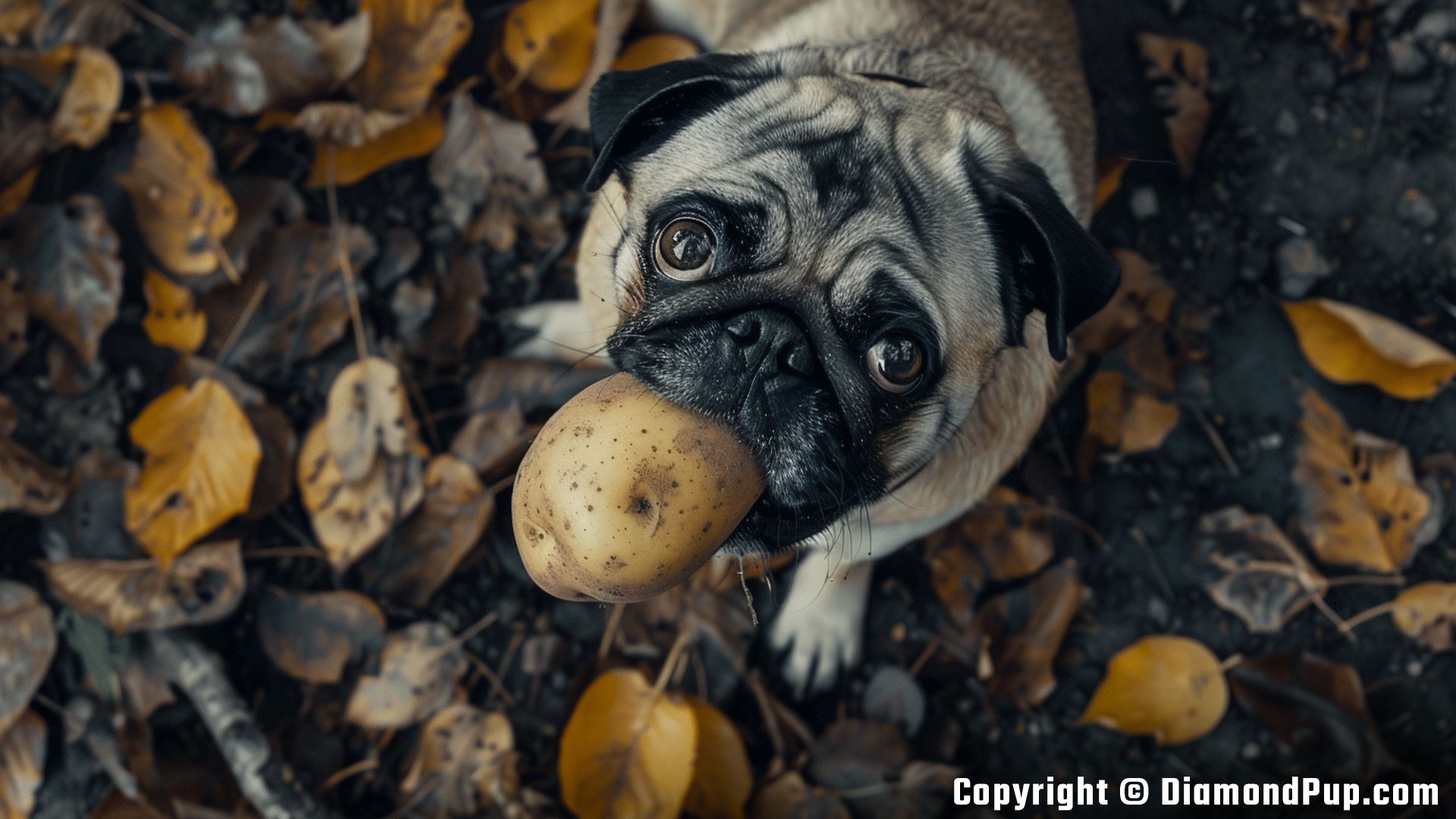
Understanding the Benefits of Potatoes for Pugs
One of the key benefits of feeding potatoes to pugs is their high content of essential nutrients such as vitamin C, vitamin B6, and potassium. These nutrients play a crucial role in supporting your pug's overall health and well-being. Vitamin C is essential for a strong immune system, while vitamin B6 helps in the formation of red blood cells. Potassium is important for maintaining healthy blood pressure levels, which is particularly beneficial for pugs, as they are prone to certain heart conditions. Including potatoes in your pug's diet can help ensure they receive these vital nutrients to thrive.
Furthermore, potatoes are a good source of dietary fiber, which can aid in digestion and promote a healthy weight in pugs. The fiber content in potatoes can help regulate your pug's bowel movements and prevent constipation. As obesity is a common issue in pugs, providing them with a balanced diet that includes fiber-rich foods like potatoes can help manage their weight and reduce the risk of obesity-related health problems.
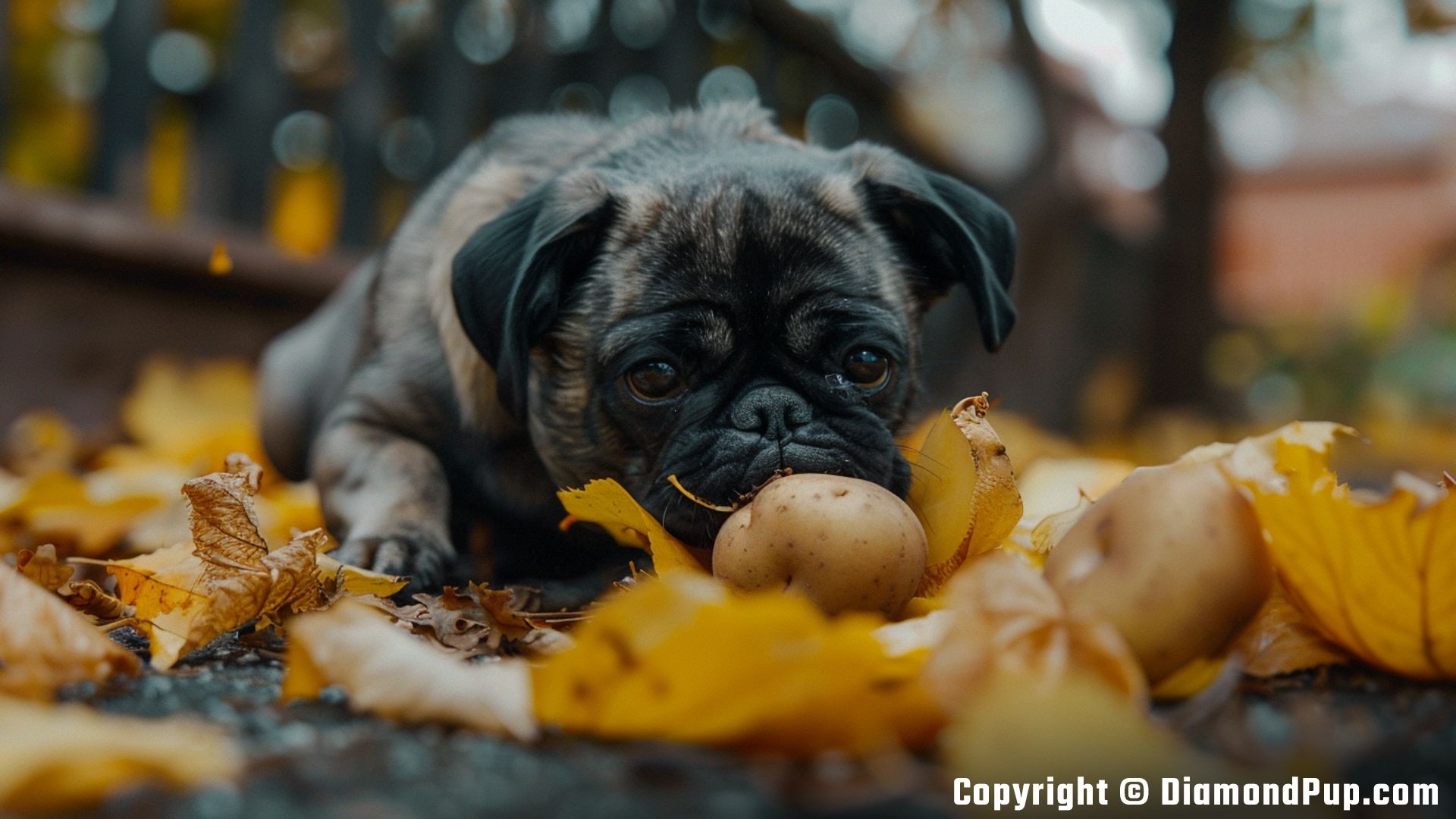
Nutritional benefits of Potatoes for Pugs
Potatoes can be a valuable source of nutrients for pugs when added to their diet in moderation. They provide essential vitamins such as vitamin C, which is important for the immune system and skin health. Potatoes also contain minerals like potassium, which helps regulate blood pressure and support muscle function in our furry companions.
Additionally, potatoes are a good source of carbohydrates, which are the main energy source for dogs. The fiber content in potatoes can also aid in digestion and promote a healthy gut flora in pugs. However, it is crucial to feed potatoes in cooked form and without any added seasonings or toppings that could be harmful to your pug's health.
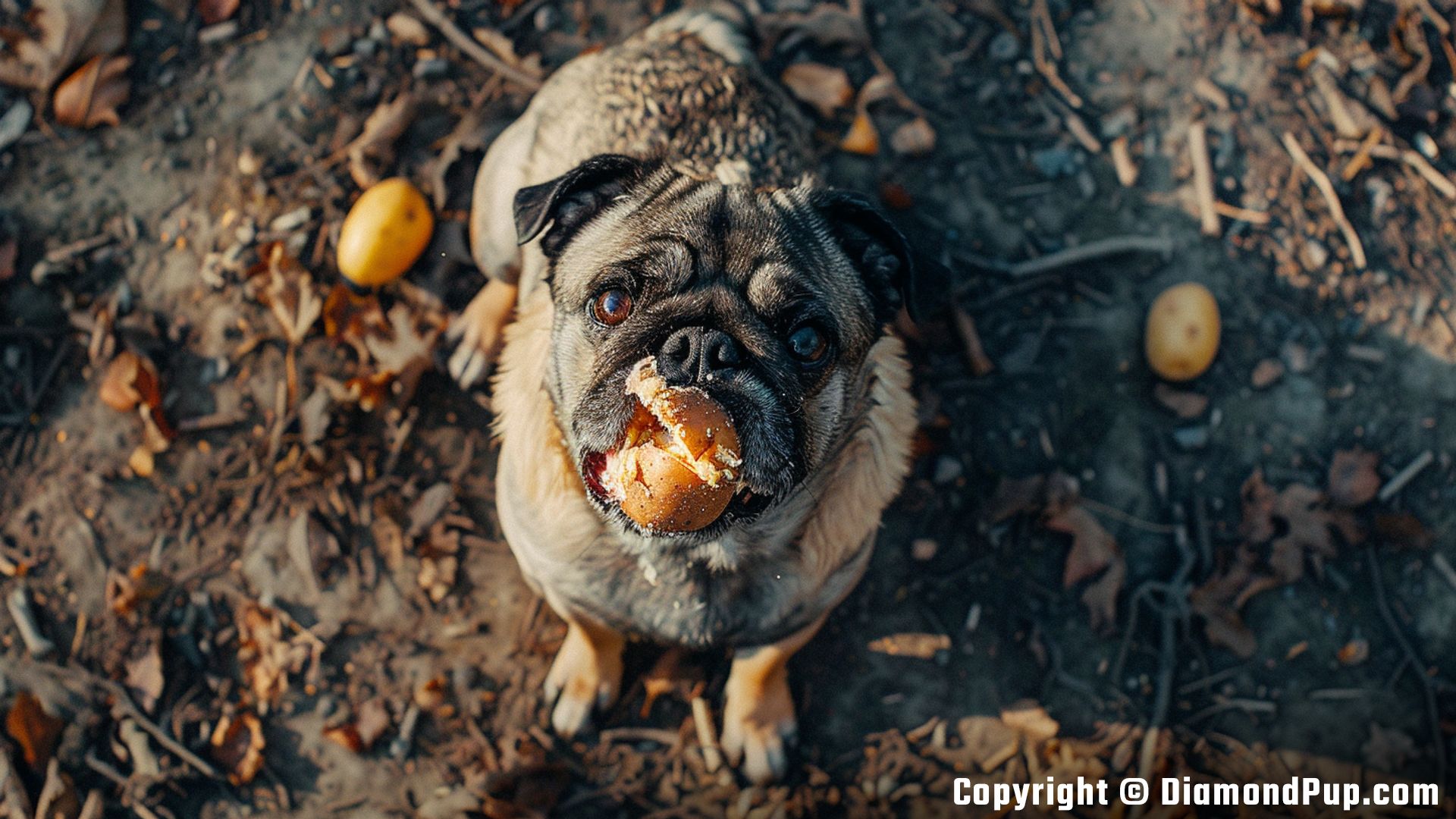
Safely Introducing Potatoes to Your Pug's Diet
When introducing potatoes to your pug's diet, it's important to do so gradually to avoid any potential digestive upsets. Start by incorporating small amounts of cooked, plain potatoes into their regular meals and monitor how they respond. It's also crucial to ensure that the potatoes are prepared in a safe manner, without any added seasonings or oils that may be harmful to your pug's health.
Furthermore, always consult with your veterinarian before making any significant changes to your pug's diet, including adding potatoes. They can provide valuable insight based on your pug's individual health needs and ensure that the introduction of potatoes aligns with a balanced and nutritious diet for your furry companion.
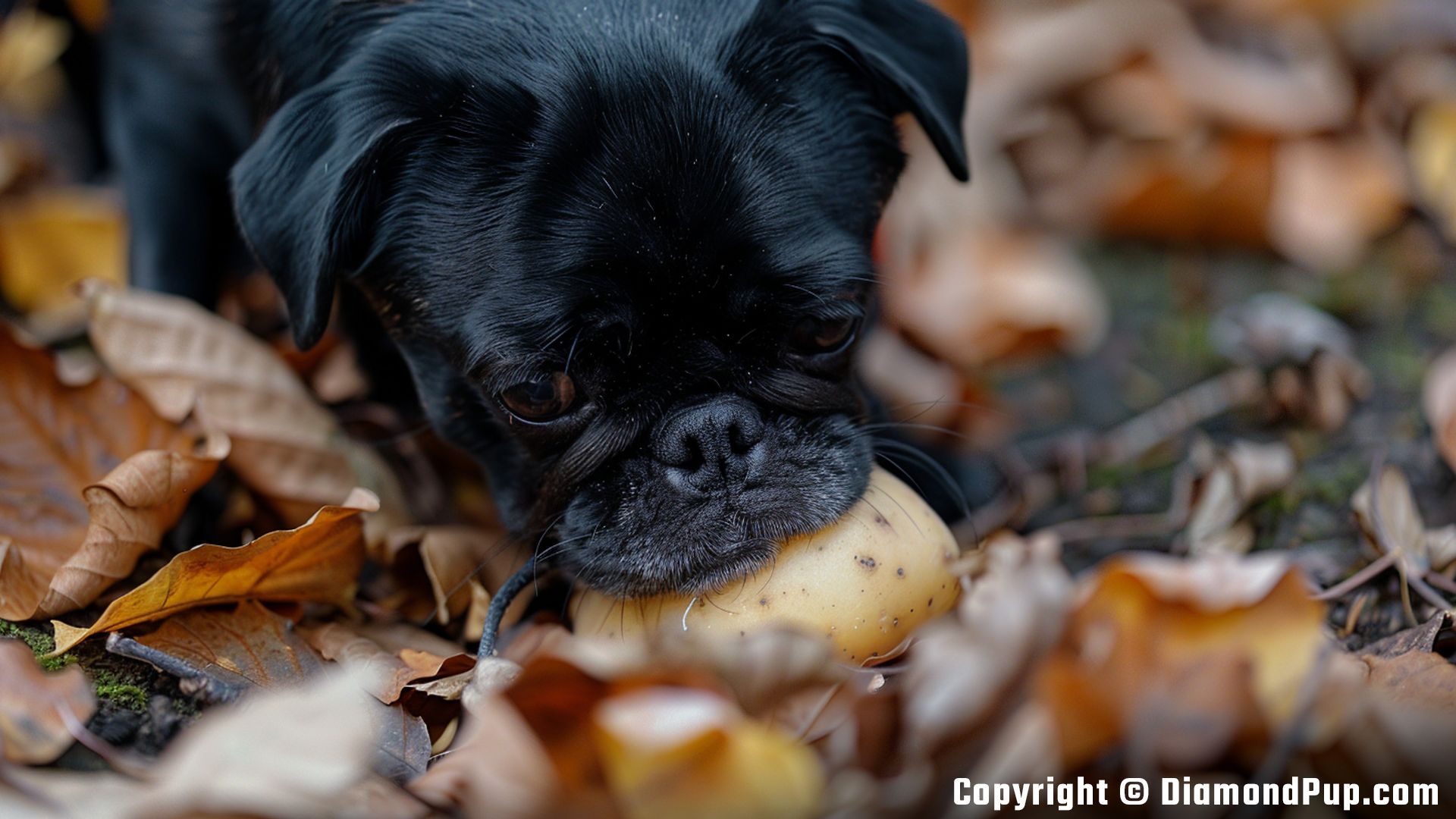
How much potato can a dog eat safely?
When it comes to feeding potatoes to your pug, moderation is key. While potatoes can be a tasty and nutritious addition to their diet, it's important not to overdo it. As a general guideline, potatoes should only make up a small portion of your pug's overall meal to ensure they receive a balanced diet. Too much potato consumption can lead to an imbalance in their nutrient intake, potentially causing digestive upset or weight gain. As a rule of thumb, potatoes should be treated as a special treat rather than a primary food source for your pug.
Additionally, it's crucial to monitor your pug for any signs of digestive issues or allergies when introducing potatoes into their diet. If you notice any unusual symptoms such as vomiting, diarrhea, or changes in appetite, it's best to consult with your veterinarian to determine the best course of action for your pug's dietary needs.
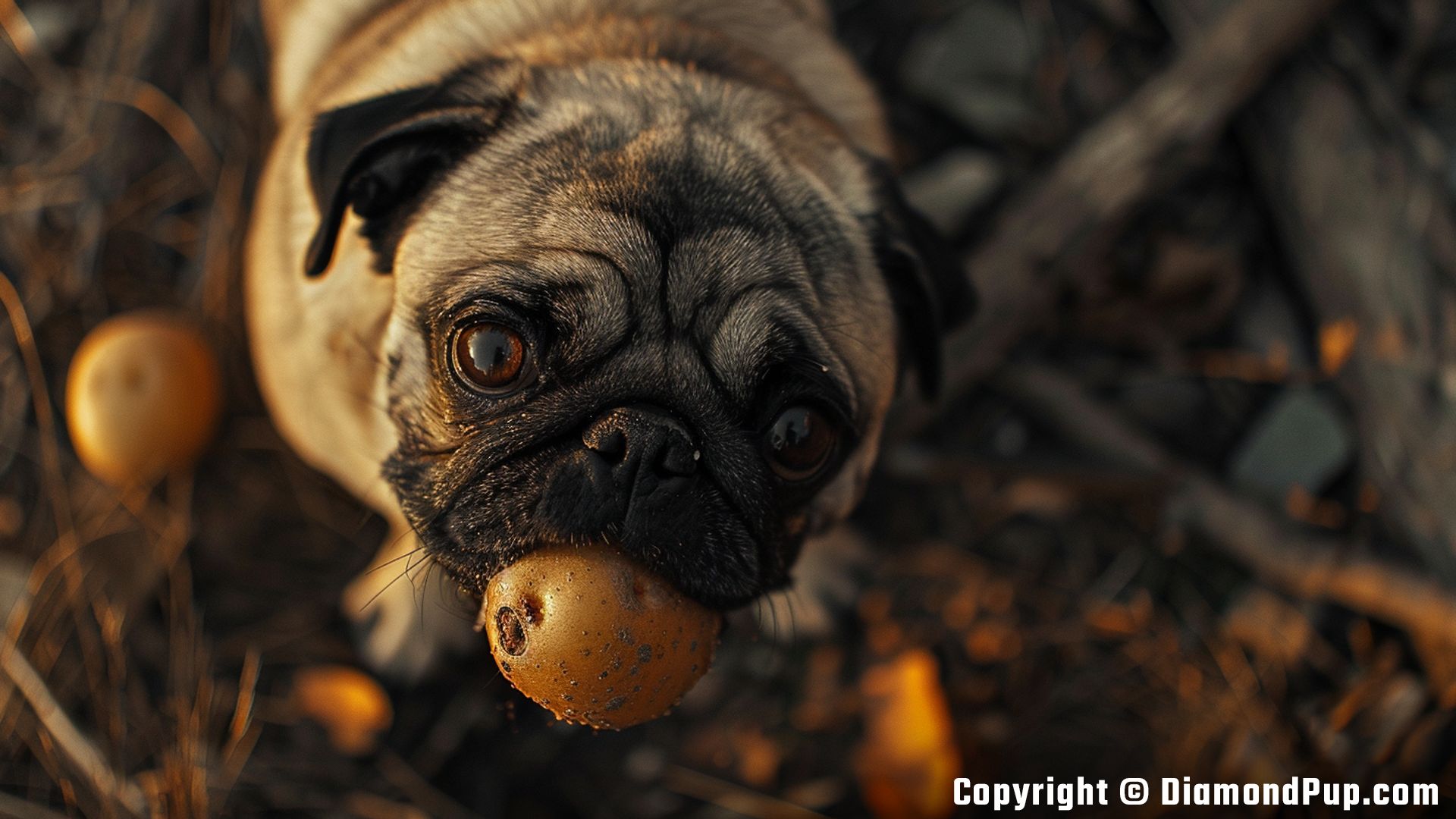
Tips to Remember When Feeding Your Pug Potatoes
When feeding your Pug potatoes, it is important to ensure they are cooked thoroughly and served plain without any seasonings or additives. Seasonings like garlic and onion can be toxic to dogs, so it's best to avoid them altogether. Additionally, when preparing potatoes for your Pug, make sure to cut them into small, bite-sized pieces to prevent choking hazards, especially considering the Pug's brachycephalic (short-nosed) anatomy.
Lastly, while potatoes can be a healthy addition to your Pug's diet in moderation, they should not make up the majority of their meals. Pugs have specific nutritional requirements that need to be met through a balanced diet, which includes proteins, fats, carbohydrates, vitamins, and minerals. Always consult with your veterinarian or a nutritionist to ensure the overall balance of your Pug's diet when incorporating potatoes or any other new food.
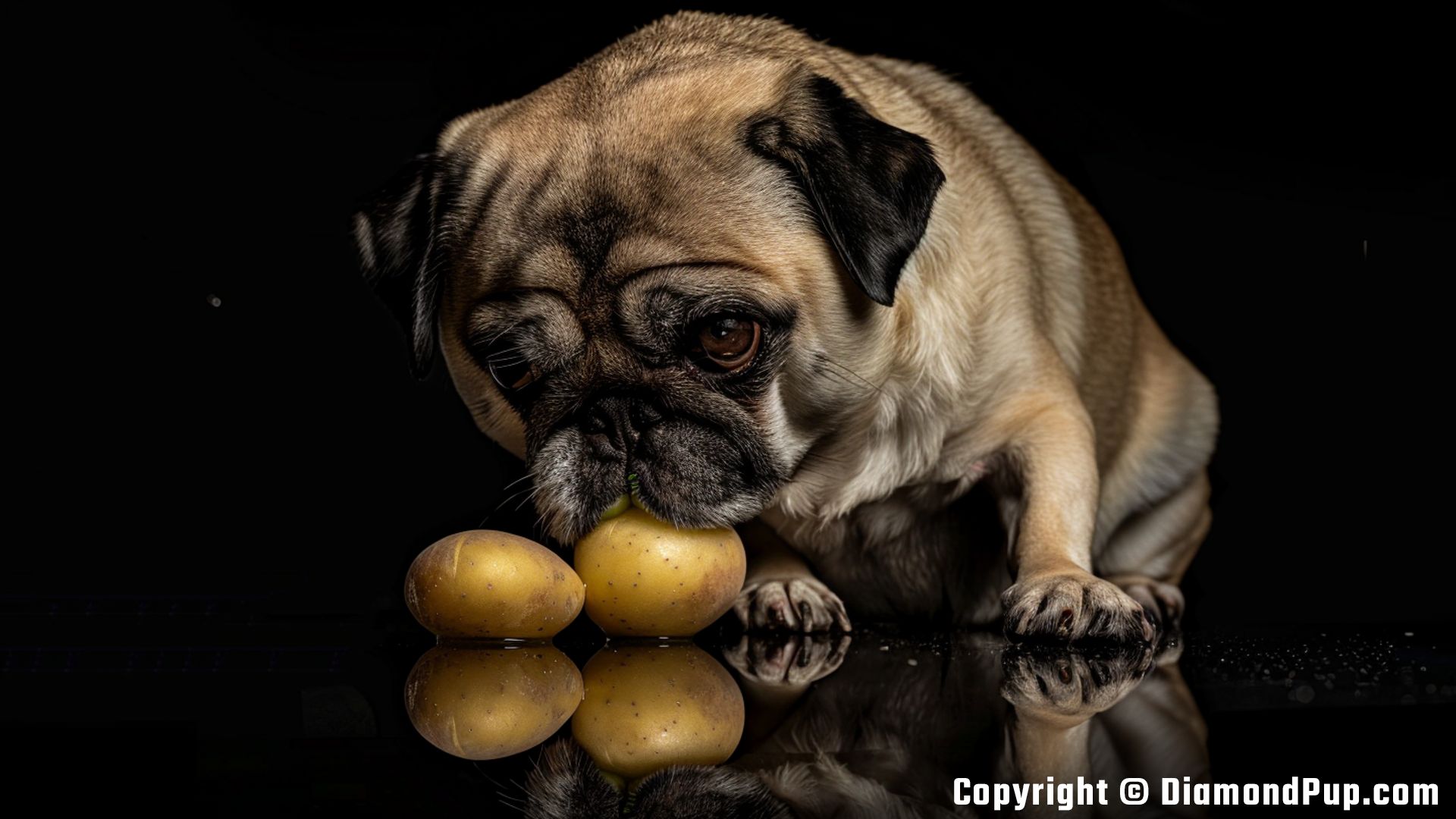
Feeding Your Pug Potatoes
When it comes to feeding your Pug potatoes, it is essential to do so in moderation. While potatoes can offer valuable nutrients such as vitamin C, potassium, and fiber, they should not make up the majority of your Pug's diet. A balanced diet for a Pug should primarily consist of high-quality dog food specially formulated for small breeds like Pugs.
When offering potatoes to your Pug, ensure they are cooked thoroughly and served without any seasoning or additives that can be harmful to dogs. Additionally, it's important to consult with your veterinarian to determine the appropriate portion size based on your Pug's individual needs and dietary requirements.
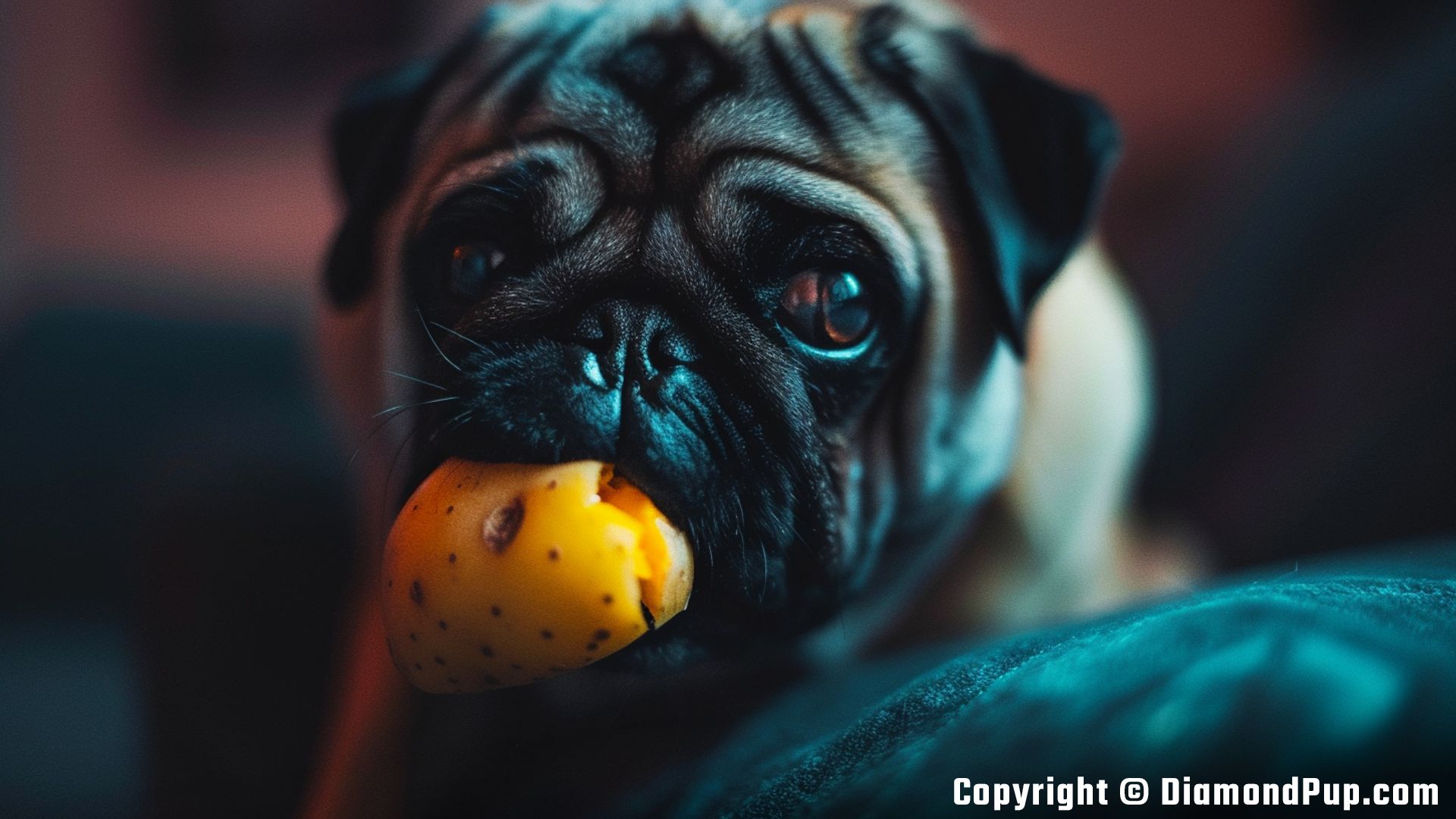
How to properly feed your pug Potatoes
When it comes to feeding your pug potatoes, it's essential to ensure that they are cooked thoroughly and served plain, without any added seasonings or toppings. Boiled or baked potatoes are the best options for your pug, as they retain most of their nutritional value without any unnecessary additives. It's important to cut the potatoes into small, bite-sized pieces to prevent any choking hazards, especially for pugs who have a tendency to eat quickly. Additionally, potatoes should only make up a small portion of your pug's overall diet to avoid any potential digestive upset.
While potatoes can offer some nutritional benefits to your pug, they should not be the main component of their meals. Always consult with your veterinarian or a pet nutritionist to ensure that the amount of potatoes you are feeding your pug is appropriate for their individual needs and dietary requirements. By following these guidelines, you can safely incorporate potatoes into your pug's diet in a way that enhances their overall health and well-being.
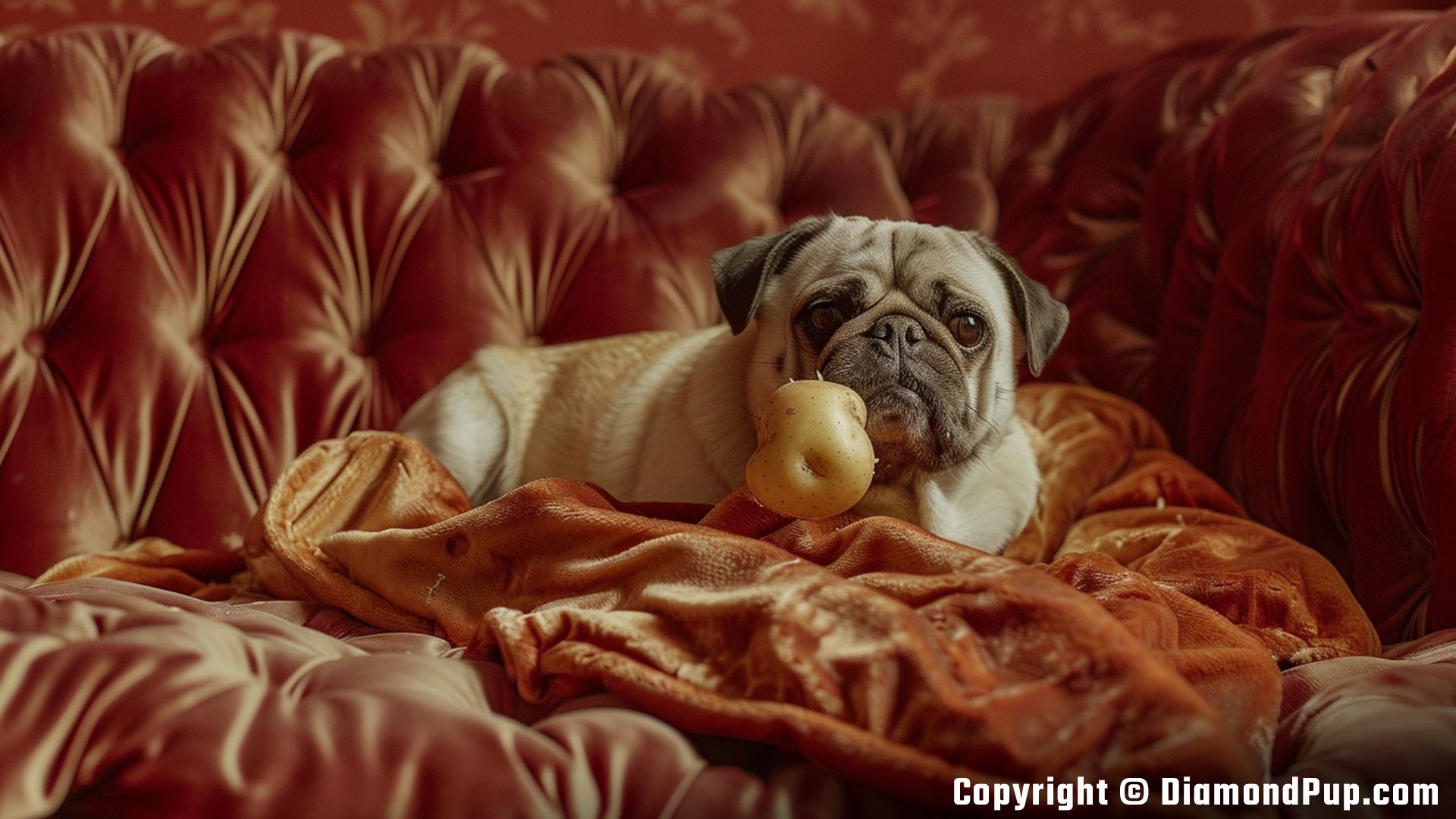
Do Pugs Like Potatoes?
Pugs tend to enjoy the taste and texture of potatoes, making them a great addition to their diet. When cooked thoroughly and mashed or chopped into small, easily digestible pieces, potatoes can be a tasty and nutritious treat for pugs. However, it's important to note that potatoes should only make up a small portion of their overall diet to ensure they are receiving a balanced intake of essential nutrients.
Some pugs may have specific dietary restrictions or sensitivities that could be triggered by potatoes, so it's always best to introduce this food slowly and monitor for any signs of digestive upset or allergies. Consulting with your veterinarian before making any drastic changes to your pug's diet is recommended to ensure their health and well-being.
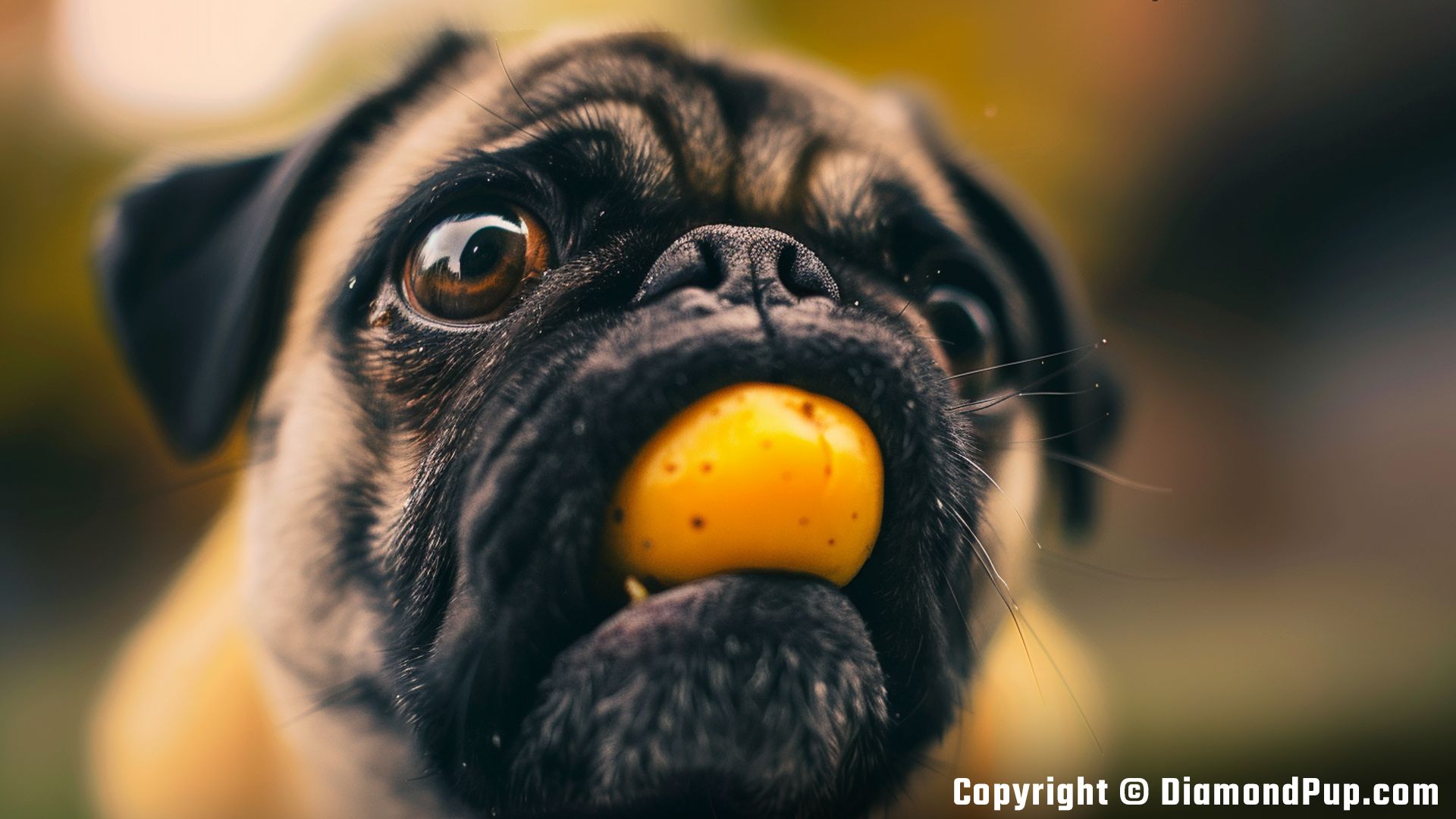
Special Consideration for Pugs
Pugs are known for their tendency to gain weight easily, making them prone to obesity. Therefore, it's crucial to monitor their food intake carefully, including any treats or additional snacks like potatoes. While potatoes can be a healthy addition to their diet when fed in moderation, it's important to consider the overall calorie content to prevent weight gain.
Additionally, due to their brachycephalic (short-nosed) anatomy, pugs may have difficulty chewing certain foods, including whole or large chunks of potatoes. To prevent choking hazards or gastrointestinal issues, it's recommended to feed pugs mashed or cooked potatoes to ensure easy digestion and reduce the risk of any potential choking incidents.
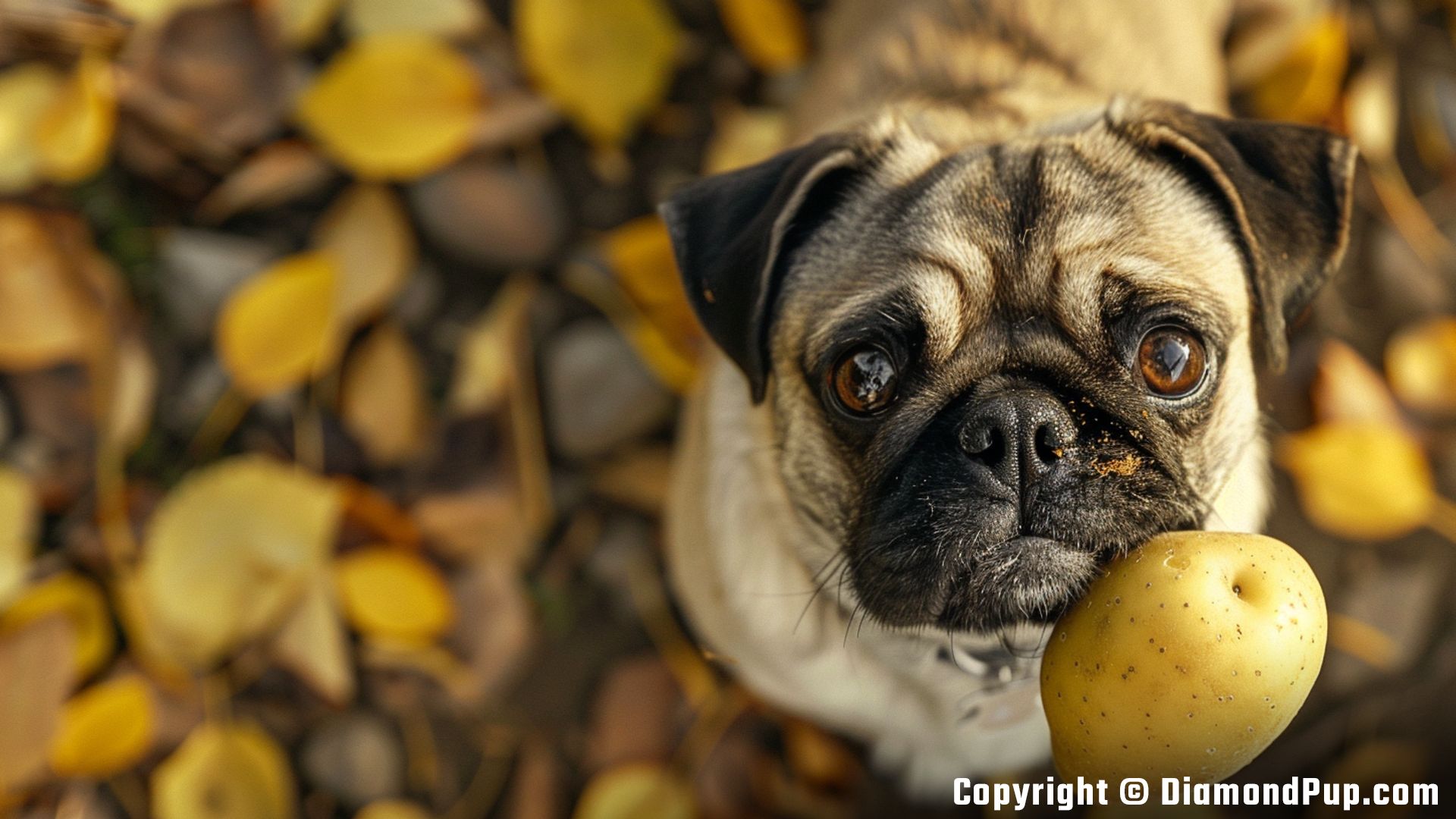
Can Puppies Have Potatoes?
When it comes to feeding potatoes to pug puppies, caution should be exercised. While potatoes can offer some nutritional value, they are also quite starchy, which can be harder for young pug puppies to digest. It's important to ensure that the potatoes are cooked thoroughly and mashed to a soft consistency to make it easier for puppies to chew and digest. Additionally, potatoes should only make up a small portion of a pug puppy's diet, with the majority consisting of a balanced puppy food specifically formulated for their growth and development.
As always, it's best to consult with your veterinarian before introducing any new food to your pug puppy's diet. They can provide personalized recommendations based on your puppy's age, weight, and overall health status to ensure they are receiving the appropriate nutrition for their specific needs.
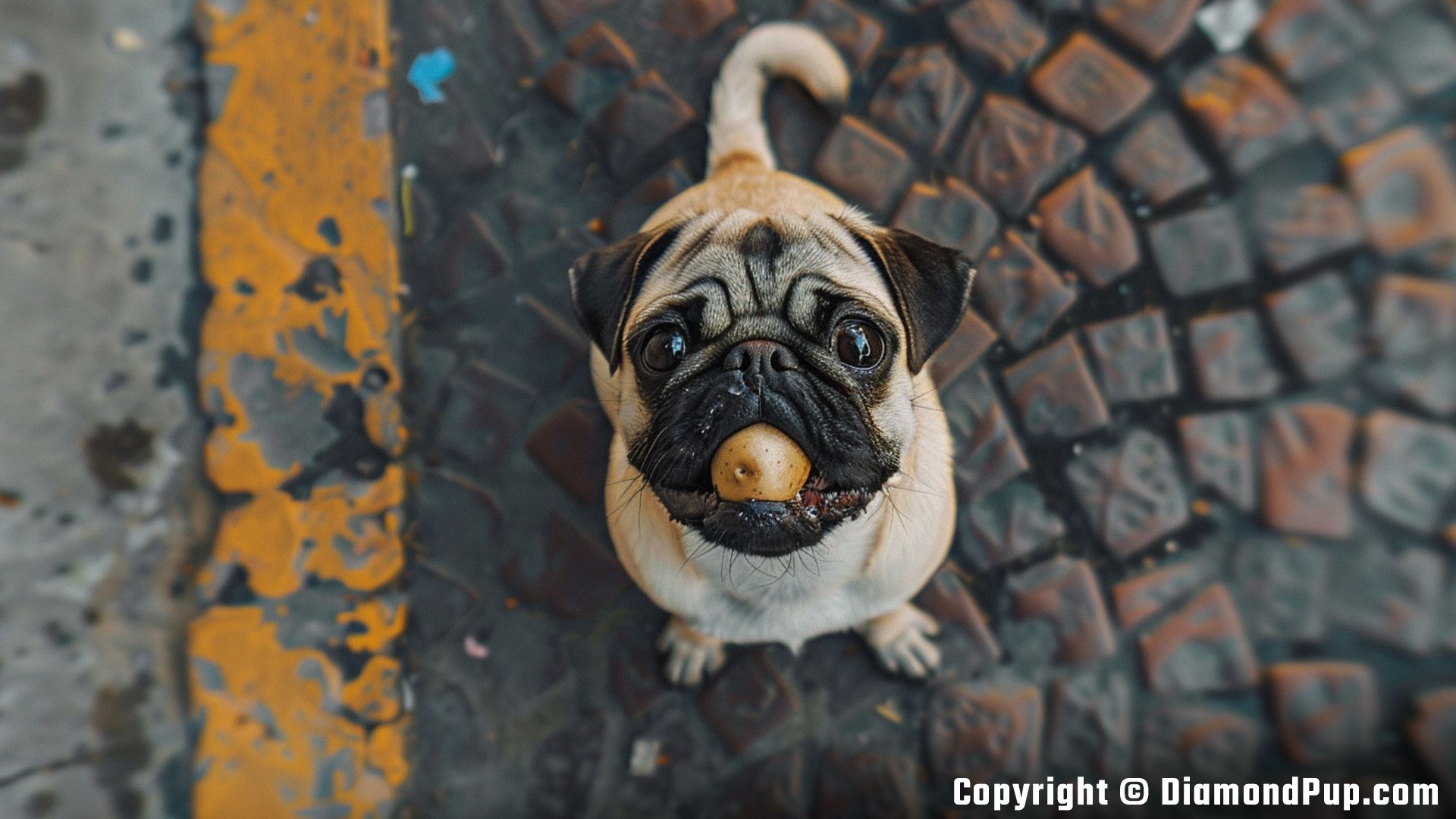
Are there any Pugs that shouldn't eat Potatoes?
While potatoes can be a nutritious addition to most pugs' diets, there are some Pugs that may not benefit from consuming this starchy vegetable. Pugs that are overweight or have weight management issues may need to be cautious with the amount of potatoes they consume, as they are calorie-dense and can contribute to weight gain if not portioned correctly. Additionally, Pugs with certain health conditions such as diabetes or digestive sensitivities may need to avoid or limit their intake of potatoes, as the high starch content can potentially exacerbate these conditions.
It is always best to consult with your veterinarian before making any significant changes to your pug's diet, especially when it comes to introducing new foods like potatoes. Your veterinarian can provide personalized recommendations based on your pug's individual health needs and help you determine if potatoes are a suitable addition to their diet.
Recipes for Feeding Your Pug Potatoes
When it comes to feeding your pug potatoes, it's essential to prepare them in a simple and safe manner. Avoid adding any seasoning or toppings such as salt, butter, or sour cream, as these can be harmful to your pug's health. Instead, opt for plain boiled or baked potatoes. Be sure to cut the potatoes into small, bite-sized pieces to prevent any choking hazards, especially considering the pug's brachycephalic (short-nosed) anatomy. You can also mix in some cooked lean meat or vegetables to create a well-balanced meal for your furry friend.
Additionally, it's crucial to monitor your pug for any signs of digestive upset after introducing potatoes into their diet. While most pugs tolerate potatoes well, some individuals may have sensitivities or allergies to this starchy vegetable. If you notice any vomiting, diarrhea, or changes in behavior, discontinue feeding potatoes and consult with your veterinarian for further guidance.
Alternatives to Potatoes for Pugs
While potatoes can be a great addition to a pug's diet, it's also important to consider other alternatives to provide a well-rounded nutrition plan. Sweet potatoes, for example, are a fantastic option rich in fiber, vitamins, and antioxidants. They can be a great substitute for regular potatoes to add variety to your pug's meals. Additionally, incorporating lean proteins such as chicken or turkey, along with healthy fats like fish oil or flaxseed, can help meet your pug's nutritional needs. what happens if a pomeranian eats potato
Common Questions About Pugs and Potatoes
One common question that pug owners may have is whether potatoes can cause allergies in their pups. While potatoes are not a common allergen for dogs, some pugs may have sensitivities to certain ingredients in the potato, such as solanine. It's always best to introduce new foods gradually and monitor your pug for any signs of digestive upset or adverse reactions.
Another important consideration is the preparation method of the potatoes. Avoid feeding your pug potatoes that are cooked with harmful ingredients like garlic and onions, as these can be toxic to dogs. Opt for plain, boiled, or baked potatoes without any added seasonings or oils to ensure the safest option for your pug's consumption.
Subscribe Now
Stay updated with the latest news and articles! We'll keep you updated on the latest tips for your pet Pug
